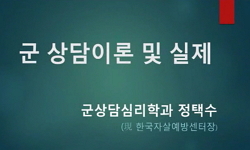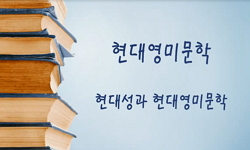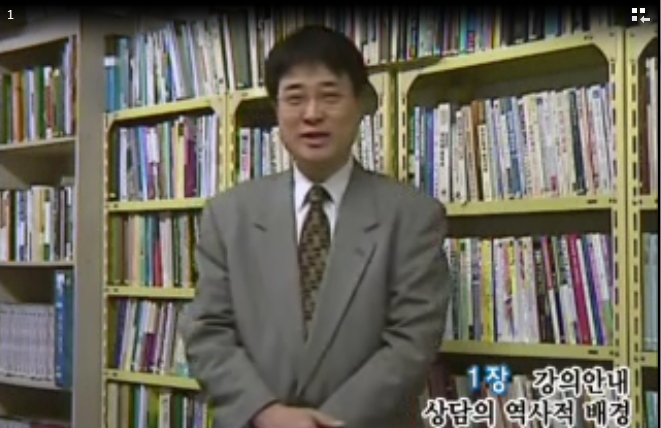This study aims to portray a desirable English literature class based on the Person-Centered Approach by Carl R. Rogers: further, I reflect on my experiences of teaching literature. The key to this approach is the belief that a student is in the proce...
http://chineseinput.net/에서 pinyin(병음)방식으로 중국어를 변환할 수 있습니다.
변환된 중국어를 복사하여 사용하시면 됩니다.
- 中文 을 입력하시려면 zhongwen을 입력하시고 space를누르시면됩니다.
- 北京 을 입력하시려면 beijing을 입력하시고 space를 누르시면 됩니다.

칼 로저스의 인본주의 심리학과 영문학 교육 = Carl Rogers’ Person-Centered Approach & English Literature Education
한글로보기https://www.riss.kr/link?id=A105535195
- 저자
- 발행기관
- 학술지명
- 권호사항
-
발행연도
2018
-
작성언어
-
- 주제어
-
KDC
740
-
등재정보
KCI등재후보
-
자료형태
학술저널
-
수록면
23-46(24쪽)
- 제공처
-
0
상세조회 -
0
다운로드
부가정보
다국어 초록 (Multilingual Abstract)
When I look back on my teaching experiences in literature classes under the influence of Rogers, I can summarize four characteristics of my classes. First, I utilize a variety of mediums, such as art, music, and creative writing assignments to make the best of the written text so that the students can engage emotionally and intellectually as a whole person. Second, I try to provide decision-making opportunities to the learners and to make them responsible for their learning. Third, I encourage my students to collaborate with their teammates in small groups where the members can express and share their responses to literary texts among themselves. Lastly, I promote communication in my classes.
To sum up, the best way of understanding the Person-Centered Approach is by realizing that students already have the potential to learn and that the teachers’ attitudes and philosophy are decisive in the learning achievement of the teachers as well as their students. Students should feel free to express their responses emotionally, intellectually, and kinesthetically rather than just accepting the experts’ interpretations. And teachers should accept students’ responses preciously. They should set aside their mask of expertise, while students should learn how to use their expertise as a resource. Teachers should also give students unconditional positive regard, care, and respect. In that way, all-students as well as teachers, -would grow. This is the insight that the Person-Centered Approach by Rogers provides on English literature education.
This study aims to portray a desirable English literature class based on the Person-Centered Approach by Carl R. Rogers: further, I reflect on my experiences of teaching literature. The key to this approach is the belief that a student is in the process of becoming a person with an actualizing tendency. It is a conviction as well that a student can be a fully functioning individual when learning is facilitated. So, Rogers emphasizes learning how to learn for the students. That becomes possible when teachers allow the students to be subjects of learning, while creating a warm ambiance. According to Rogers, the three qualities of a facilitator-or a teacher are genuineness(or realness, congruence), unconditional positive regard, and empathy. This paper illuminates the traits, based on which we can draw insights on English literature education.
When I look back on my teaching experiences in literature classes under the influence of Rogers, I can summarize four characteristics of my classes. First, I utilize a variety of mediums, such as art, music, and creative writing assignments to make the best of the written text so that the students can engage emotionally and intellectually as a whole person. Second, I try to provide decision-making opportunities to the learners and to make them responsible for their learning. Third, I encourage my students to collaborate with their teammates in small groups where the members can express and share their responses to literary texts among themselves. Lastly, I promote communication in my classes.
To sum up, the best way of understanding the Person-Centered Approach is by realizing that students already have the potential to learn and that the teachers’ attitudes and philosophy are decisive in the learning achievement of the teachers as well as their students. Students should feel free to express their responses emotionally, intellectually, and kinesthetically rather than just accepting the experts’ interpretations. And teachers should accept students’ responses preciously. They should set aside their mask of expertise, while students should learn how to use their expertise as a resource. Teachers should also give students unconditional positive regard, care, and respect. In that way, all-students as well as teachers, -would grow. This is the insight that the Person-Centered Approach by Rogers provides on English literature education.
목차 (Table of Contents)
- Ⅰ. 들어가며
- Ⅱ. 로저스의 인본주의 심리학
- Ⅲ. 영문학 수업 현장
- Ⅳ. 수업의 실제: 대안적인 수업 방법
- Ⅴ. 나의 영문학 수업을 돌아보며
- Ⅰ. 들어가며
- Ⅱ. 로저스의 인본주의 심리학
- Ⅲ. 영문학 수업 현장
- Ⅳ. 수업의 실제: 대안적인 수업 방법
- Ⅴ. 나의 영문학 수업을 돌아보며
- Ⅵ. 나가며
- 인용문헌
- Abstract
동일학술지(권/호) 다른 논문
-
- 한국영어독서교육학회
- 박유순(Park Yu soon)
- 2018
- KCI등재후보
-
- 한국영어독서교육학회
- 전윤실
- 2018
- KCI등재후보
-
Effectiveness of Phonics Instruction on Reading Motivation of Korean Elementary EFL Learners
- 한국영어독서교육학회
- Joan Yoon
- 2018
- KCI등재후보
-
- 한국영어독서교육학회
- 김미숙(Kim Mi sook)
- 2018
- KCI등재후보




 스콜라
스콜라






